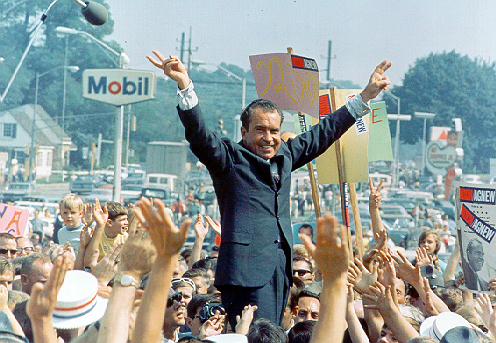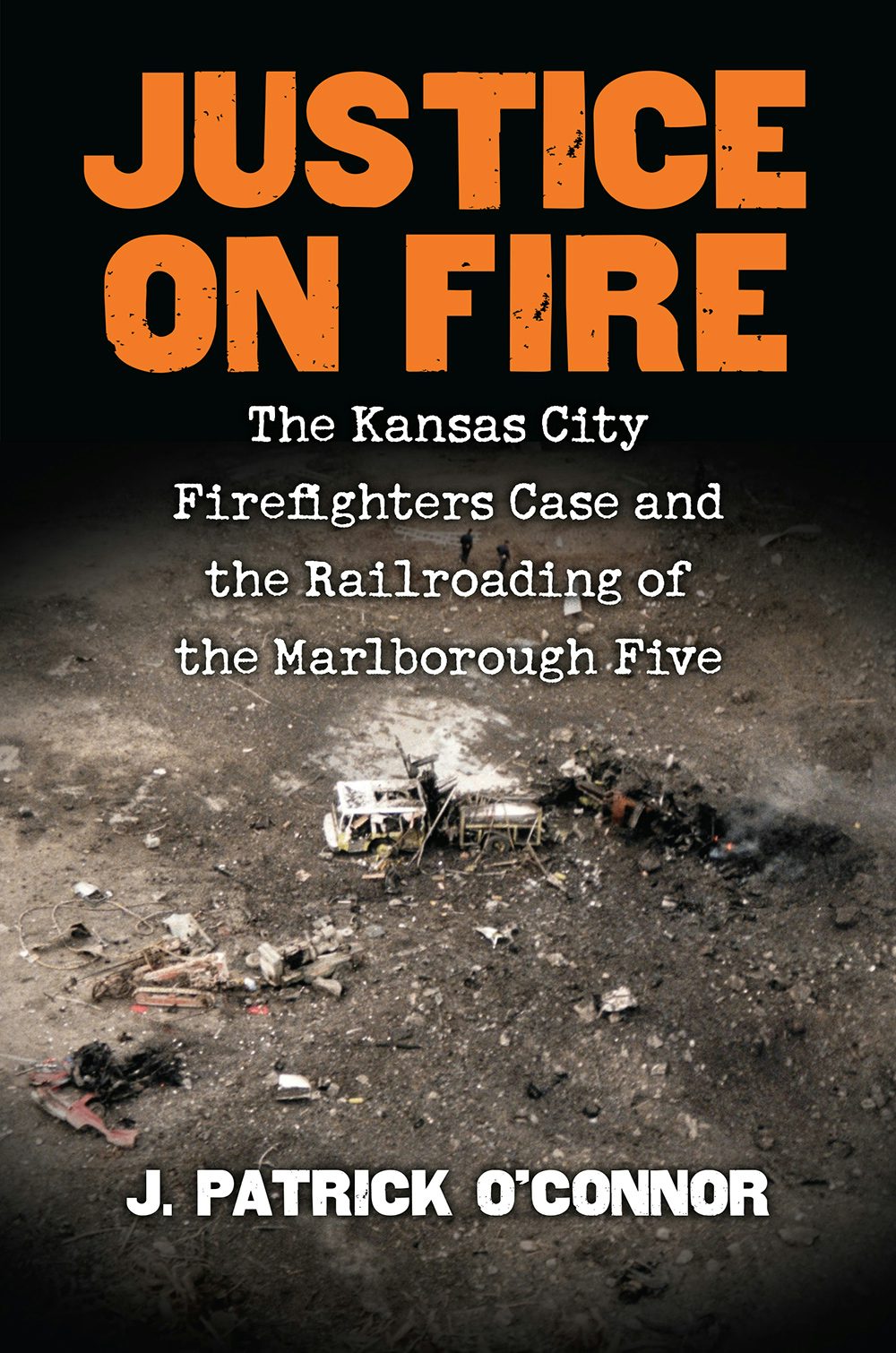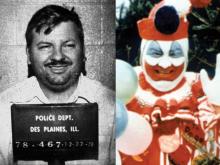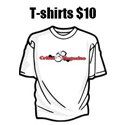December 30, 2008

Richard Nixon
Treason is the highest crime an American can commit against his country. And that's what one president accused his successor of committing.
by Don Fulsom
Richard Nixon's treason to scuttle President Lyndon Johnson's 1968 Paris peace talks—much more than Watergate or his long-time ties to the Mafia—should stand as our 37th President's greatest sin. There's no better word than "despicable" (used by LBJ in this context) to describe Nixon's betrayal.
In a newly released Johnson phone call to Senator Everett Dirksen, just before the November 1968 election, the Senate GOP leader readily agreed with the President's treason conclusion about Nixon, and pledged to call his party's presidential candidate on the carpet on it.
Johnson himself – a number of times earlier, and later – scolded Nixon, who repeatedly denied any knowledge of sabotage and pledged to do nothing to hurt President Johnson's efforts to end the war. (When the phone was hung up after at least one of these Nixon lies, Nixon and his cohorts reportedly burst into loud and sustained laughter.)
The newest LBJ Library tapes tell the dramatic story of how Johnson blew his stack and nearly blew the whistle on Nixon's treachery.
On Nov. 2, 1968, three days before the election, Johnson let Dirksen peek at Johnson's self-described "hole cards" in his unbeatable poker hand in a high-stakes showdown against Nixon. The president and Dirksen realized the President was alluding to NSA intercepts, FBI wiretaps and CIA bugs.
LBJ: The (Nixon) agent (China Lobby stalwart and old Nixon crony Anna Chennault) says she's just talked to the boss (Nixon) …and that he said that you (South Vietnamese President Nguyen van Thieu) must hold out, just hold on until after the election.
In an obvious reference to the fact that Thieu's Saigon offices were bugged, LBJ added: "We know what Thieu is saying to them out there. We're pretty well informed at both ends."
At this point, Johnson issued a not-so-subtle hint about possibly leaking the Nixon treason story to the press.
LBJ: I don't want to get this in the campaign …They oughtn't be doing this. This is treason.
ED: I know.
LBJ: I think it would shock America if a principal candidate was playing with a source like this on a matter of this importance. I don't want to do that [go public]. They ought to know that we know what they're doing. I know who they're talking to. I know what they're saying.
Later, after Dirksen had absorbed more of LBJ's report on Nixon's perfidy, Dirksen said, "I'd better get in touch with him, I think."
But LBJ wasn't through:
LBJ: They're contacting a foreign power in the middle of a war. It's a damn bad mistake. And I don't want to say so…You just tell them that their people are messing around in this thing, and if they don't want it on the front pages, they better quit it.
As President, in mid-1971, Nixon got word – apparently from his chief of staff, Bob Haldeman – that President Johnson's Vietnam files, including the decision behind LBJ's pre-election bombing halt (Nixon thought it was timed to help Democratic candidate Hubert Humphrey – but it wasn't), as well as Nixon's sabotage of the Paris peace talks, were being housed at the left-leaning Brookings Institution in Washington, D.C.
"You can blackmail Johnson on this stuff," Haldeman excitedly asserted about the bombing halt material. Nixon biographer Anthony Summers noted that Nixon had another reason for wanting to get the Vietnam files. "(Nixon) had actively worked to sabotage the 1968 peace talks, and the record in question might actually prove more damaging to him than to President Johnson."1
So President Richard Nixon endorsed a wild scheme, shockingly wild – the firebombing of, and theft of files from, the Brookings Institution in Washington. The documents were well worth the risk, he figured, if they held evidence of his deliberate subversion. He also thought they might offer proof that his own 1968 campaign plane was bugged; it wasn't). Without specifically mentioning his Brookings break-in demand in his 1975 memoirs, Nixon did admit he had told his staff he wanted the Vietnam files he believed were in Brookings' possession delivered to him, "even if it meant having to get it surreptitiously."
The Brookings plan was bizarre. "Masterminded" by G. Gordon Liddy of later Watergate infamy, it would have featured an old fire truck repainted with the markings of the District of Columbia's Fire Department. Manned by a disguised fire crew of pro-Nixon Cubans from Miami, the fake fire engine would rush to a plumber-instigated incendiary assault on Brookings. The pretend fire crew, while ostensibly there to fight the firebombing blaze, would then break into the vaults, make off with the Vietnam files, transfer them to a waiting van – and then ditch the fraudulent fire engine.2
In his autobiography, Liddy surmised that a successful Brookings caper might have prompted some guessing games about the identities of the miscreants "in the liberal press," but that "because nothing could be proved, the matter would lapse into the unsolved-mystery category."
John Dean, President Nixon's White House lawyer, had a far more sensible take on the contemplated firebombing. Dean claims he was able to shut down the operation (the "joint" had already been "cased" – in Dean's words – by Nixon agents, who were turned away by an alert security guard). Dean convinced presidential aide John Ehrlichman that if anyone died in the blast, it would be a capital crime that might be traced back to the White House. Ehrlichman later acknowledged calling off the plan – and confirmed that Nixon knew of it in advance.3
Just think: Had Dean not prevailed with Ehrlichman, had this break-in actually occurred, had it involved a death, and had it been botched as badly as Watergate, then murder and domestic terrorism might well have been added to Nixon's list of impeachable offenses.
In addition, just ordering the Brookings break-in "would be an impeachable offense," according to Terry Lenzner who was a top official on the Senate Watergate committee. "It is the President ordering a felony to obtain information."4
And don't forget treason – had DC police recovered the 1968 campaign files from the phony firemen or fake DC fire engine.
What would have been found? Piles of evidence of Nixon's treachery, including this "smoking gun" intercept of a back-door message from Nixon to Thieu: "Hold on. We're Gonna Win." The message was plain, according to Nixon's go-between Anna Chennault: "Stay away from the peace talks." 5
In 1968, Vietnam was the No. 1 issue in the campaign. Nixon was generally viewed as the dovish candidate because he promised to implement a secret plan to "end the war and win the peace." Humphrey was viewed as a candidate who would continue President Lyndon Johnson's unpopular hawkish war policies.
LBJ had dropped out of the presidential race to devote the remainder of his tenure to peace in Vietnam. He'd hoped, since quitting, to bring the fighting to an end through three-way (Hanoi, Saigon and Washington) peace talks in Paris. Nixon feared that if the Johnson succeeded, Humphrey would win the November election. It was the kind of "October Surprise" the paranoid GOP nominee feared most.
Shortly before voters went to the polls, to insure that Hanoi would attend the Paris talks, the President Johnson announced a halt in the U.S. bombing of the North. Nixon learned of this important development through Henry Kissinger – an informal LBJ advisor to the peace talks. In Nixonland, Rick Perlstein observes, "The Johnson team trusted (Kissinger) implicitly. They shouldn't have. Kissinger was a double agent feeding the intelligence to Nixon that let him scotch the peace deal before the election."
Johnson's bombing halt announcement, just days before the election, briefly gave Humphrey a slight lead in public-opinion polls – though he would go on to lose to Nixon by fewer than 500,000 votes.
All during the 1968 campaign, working through a separate secret agent – one even more secret than Kissinger – Nixon had been telling South Vietnam's President Nguyen van Thieu to boycott any LBJ-sponsored talks and hold out for a better deal under a Nixon presidency. Thieu obliged, wrecking the talks and any chance for peace during the final months of Johnson's presidency.
Nixon's back-channel in his contacts with Thieu was Anna Chennault, a.k.a. the Dragon Lady. The gorgeous 43-year-old widow of World War Two U.S. "Flying Tigers" hero General Claire Chennault, had moved from Taiwan to the United States in 1960. Anna was co-chairman of Women for Nixon-Agnew.
At Nixon's request, Chennault established contacts with the South Vietnamese Ambassador to Washington, Bui Diem. In July 1968, Chennault introduced the ambassador to the GOP presidential hopeful at a hush-hush meeting at Nixon's New York apartment. According to Chennault, Nixon told Bui Diem he could "rest assured" that, if elected, "I will have a meeting with (Thieu) and find a solution to winning the war." He added that Chennault was to be "the only contact between myself and your government."
Anna Chennault also had some dealings, face-to-face and on the telephone, with Nixon's campaign manager, John Mitchell. Unless he was speaking on a secure phone line, however, Mitchell kept his most of his thoughts to himself. He strongly suspected that government agents were monitoring the Dragon Lady's activities.
Mitchell's suspicions were spot-on. And a furious Johnson didn't hesitate to let Mitchell's boss himself know what he knew about Nixon's underhanded anti-peace maneuverings.
On a number of occasions, President Johnson talked directly to Nixon about the sabotage. In one conversation, after filling Nixon in on his campaign's dealings with Thieu, LBJ added, "I'm not trying to trick you." It was a not-so-subtle dig at Nixon for his well-deserved nickname: Tricky Dick. Of course, Nixon denied knowing anything about the sabotage. And he reassured the President he would do nothing to undercut the peace process.
Even after the election, Johnson kept pressing the issue with Nixon:
LBJ: These people (the South Vietnamese) are proceeding on the assumption that folks close to you tell them to do nothing 'til January the 20th.
RN: I know who they're talking about too. Is it John Tower?
LBJ: Well, he's one of several. Miss Chennault is very much in there.
RN: Well, she's very close to John Tower.
In this discussion, Nixon not only threw loyal Texas Republican Senator John Tower under the bus, he also stressed the words "very close." What Nixon was apparently alluding to was a not-so-secret affair Senator Tower was having with the fabled Dragon Lady.
The lovers were both right-wingers and heavy partiers on the Washington cocktail circuit. Tower had replaced Lyndon Johnson in the Senate. The two men were bitter enemies. So Nixon probably had that in mind when he ratted out Tower to LBJ.
A former Tower associate says the senator, long after his second failed marriage, freely admitted having a long-term liaison with Chennault. Tower was very fond of Anna, and, the source added, after they broke up, Tower said Chennault went on to "a torrid fling" with Thomas McIntyre, a left-wing Democratic Senator from New Hampshire and a "heavy foreign policy hitter."
Perhaps Chennault became soured on Republicans after Nixon quickly proceeded to betray her and the South Vietnamese government. Her "boss," as she referred to Nixon in her clandestine communications, was soon publicly voicing the LBJ line on Vietnam. Chennault and Thieu rightly concluded they had been duped by the soon-to-be 37th President of the United States.
In a 2002 interview with the Shanghai Star, a bitter Mrs. Chennault declared: "To end the war was my only demand. But after (Nixon) became president, he decided to continue the war. Politicians are never honest."
In the phone call in which he falsely fingered Anna's paramour, John Tower, as a possible traitor, Nixon promised Johnson he would contact Ambassador Bui Diem and urge South Vietnam to take part in the Paris negotiations. He didn't say exactly how he would do this, but Nixon pretended to know little about the ambassador, even asking LBJ at one point, "Does he speak English?" After all, Nixon had conferred with Bui Diem – who spoke perfect English – just months before.
So, no wonder when President Nixon heard that LBJ's files on Nixon's 1968 "treason" might be at Brookings—he repeatedly insisted that the liberal think tank be raided.
At a Nixon meeting with National Security Advisor Henry Kissinger and chief of staff Bob Haldeman, Kissinger observed, "I wouldn't be surprised if Brookings had the files."
Haldeman: The bombing halt is in the same file, or in some of the same hands.
Nixon: Do we have it? I've asked for it. You said you don't have it?
Kissinger: We have nothing here, Mr. President.
Nixon: Damnit! I asked for that (unintelligible). Get in there and get those files!
In a later conversation with Haldeman, Nixon asked: "Did they get the Brookings Institute (sic) raided last night? No? Get it done. I want it done. I want the Brookings Institute's safe cleaned out and have it cleaned out in a way that it makes somebody else responsible."
Why didn't President Johnson blow the whistle on Nixon's sabotaging of the Paris peace talks? He explained his thinking in a newly released phone chat with Senator George Smathers of Florida – a good friend of Nixon: "I didn't expose it because I just couldn't use those sources (NSA and FBI) and I didn't want to make it impossible for (Nixon) to govern." (Had I) exposed this, blurted it out, it would have shocked the country so that he would have been seriously hurt."
LBJ had also been listening to the good advice of aide Clark Clifford, who counseled: "Some elements of the story are so shocking in their nature that I'm wondering whether it would be good for the country to disclose the story and then possibly have a certain individual (Nixon) elected. It could cast his whole administration under such doubt that I think it would be inimical to our country's interests," according to investigative reporter Robert Parry.
On the other hand, LBJ did not listen to a young White House aide named Richard Holbrooke, who went on to become a top State Department official. Holbrooke later charged that Nixon and his co-conspirators "massively, directly and covertly interfered in a major diplomatic negotiation …probably one of the most important negotiations in American diplomatic history."
President Johnson's attitude toward a top political adversary and toward his country could possibly rank as a one of the noblest gestures in modern American political history. He'd caught a political opponent undermining sensitive negotiations that might have ended the fighting in Indochina and brought 500,000 U.S. troops home immediately
As president, Richard Nixon went on to order the dropping of more bombs than any other commander-in-chief. He even secretly bombed neutral Cambodia for more than a year. Nixon double-crossed Thieu time and time again – and eventually even issued a thinly veiled threat on the South Vietnamese president's life.
Some 20,000 American troops died during Nixon's White House years, and the Vietnam War was still going on, when – faced with impeachment and conviction for a wide range of corrupt and illegal domestic conspiracies and cover-ups – the president was forced from office in disgrace in 1974.
When Saigon fell to Communist troops in 1975, the United States lost its first war.
Yet Richard Nixon's gravestone reads: "The greatest honor history can bestow is the title of peacemaker."
Footnotes:
1. Anthony Summers, The Arrogance of Power, 385.
2. "Brookings Guard Who Foiled Burglars Dies," by Johanna Newman, Los Angeles Times, Mar. 01, 2003. In print edition A-16.
3. Anthony Summers, The Arrogance of Power, 387.
4. San Francisco Chronicle, Nov. 21, 1996.
5. "Nixon: Arrogance of Power," History Channel.
Photo Information:
Richard Nixon displaying his classic "victory" sign was photographed in Philadelphia, July 1968, by official White House photographer, Ollie Atkins. Source: http://www.gmu.edu/library/specialcollections/nixon.html
Don Fulsom covered the Johnson and Nixon presidencies for United Press International. Now a professor of government at American University in Washington, D.C., Fulsom can be reached at df44 @ gmail.com








